
I
f you want to power a 40-tonne truck electrically - why not put the battery in the trailer instead of the tractor unit? This idea gave rise to the eTrailer, which the Aachen-based start-up Trailer Dynamics and Krone developed together: a powerful electric axle that works independently of the tractor unit. Abdullah Jaber is one of the smart minds behind the system: as managing director of Trailer Dynamics, he is the technical director. “If you really want to drive emission-free in heavy goods transport, the tractor unit is only capable of carrying the battery to a very limited extent in terms of its load capacity and volume. But the trailer has everything: it can carry and stow the battery without exceeding the permitted axle loads.”
Combined with a diesel vehicle, an electric plug-in hybrid is created
The electrified axle replaces one of the conventional axles in the trailer. Via a sensory kingpin, the electric driveline can be tracked reliably and in real time, even without control inputs from the tractor unit. The system can be combined with all common tractor units. These are supported with the additional eAxle power in the drive and can also be dimensioned smaller - thus reducing both the running operating costs and the total cost of ownership. The combination of eTrailer and diesel vehicle creates an electric plug-in hybrid. Diesel trucks thus become less CO2-intensive, and the eTrailer enables electric tractor units to achieve a noticeable increase in range.
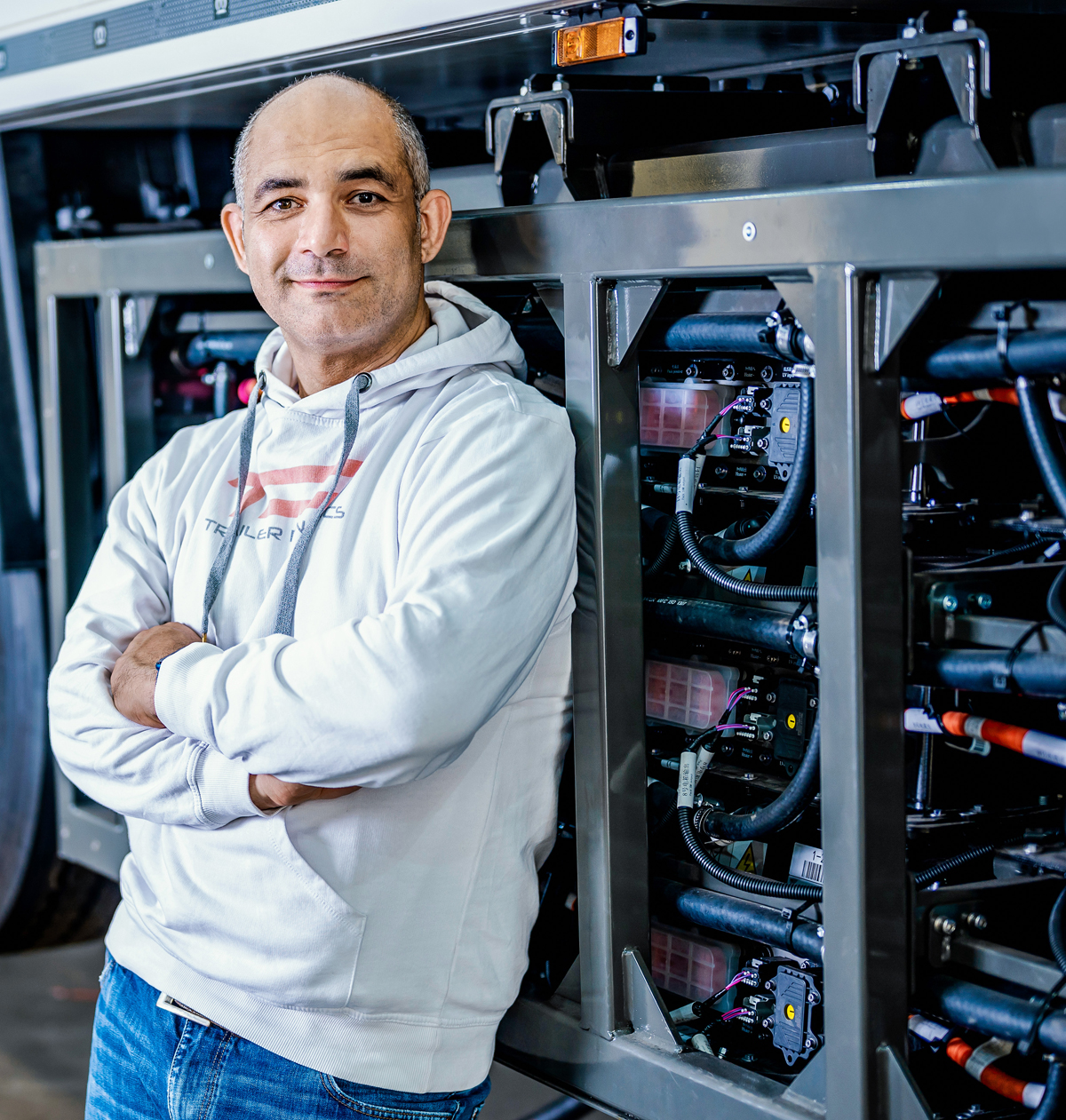
Technically, Jaber compares the eTrailer to an e-bike: the tractor unit and the eTrailer are mutually interchangeable and communicate with each other, but not much - just as is the case with a cyclist and his or her e-bike. The cyclist operates the pedals and brakes, but not much else is needed to move forward. In the same way, he says, the eTrailer has to anticipate to some extent independently what the driver in the tractor is doing: “When he goes into a bend or stands at the traffic lights, the trailer must not give thrust independently.” The eTrailer, just like an e-bike, makes driving resistance less and helps the tractor unit to come up against it more easily. The trailer accounts for up to 70 percent of the driving resistance anyway - so the control system is in exactly the right place.
Discrepancy between emission targets and efficiency
Actually, Abdullah Jaber, a physicist by training, has long been concerned with topics such as the nature of gravity. But in his diploma thesis, he had pursued the question of how commercial vehicles can become more efficient. At the time, he recognised the discrepancy between NOx emission targets and the efficiency of diesel engines: “The cleaner a vehicle is, the more difficult it is to reach maximum efficiency. In addition, of course, the needs of the transport companies play an important role. They want to transport as much volume and payload from A to B as possible. Considering the previous specifications regarding the length, width and height of vehicles, we have therefore suggested that the legislator should give more space, for example, to improve aerodynamics.” Because the customer naturally wants a cargo space with maximum payload and the largest possible useful volume.
“We don’t just talk about climate change and problems, we actually do something.”
Abdullah Jaber
More payload would also be desirable because the batteries add weight: “Of course, there were no solutions then in those directions.” With a designer and several engineers, Jaber later developed a so-called inflatable aerodynamic application for commercial vehicles, which improved aerodynamics. At that time, they were already talking to Krone about it: “But we were perhaps a little ahead of our time - there were not yet the necessary guidelines that would have allowed such an attachment.”
The vision of the electrically driven trailer
In 2018, Jaber and a small team jumped in at the deep end and founded Trailer Dynamics with the help of investor Michael Nimtsch. The vision: to develop an electrically powered trailer that could contribute to the decarbonisation of the economy and to sustainable, environmentally friendly logistics for long-distance trucks. And: the trailer should receive the appreciation it deserves. “It was not easy to get our ideas heard. We talked to many large vehicle manufacturers - they didn’t take us seriously or didn’t find the idea practical,” says Jaber. “In 2020, however, we got back in touch with Krone, and COO Dr Stefan Binnewies called me right back the day our documents were on his desk.”
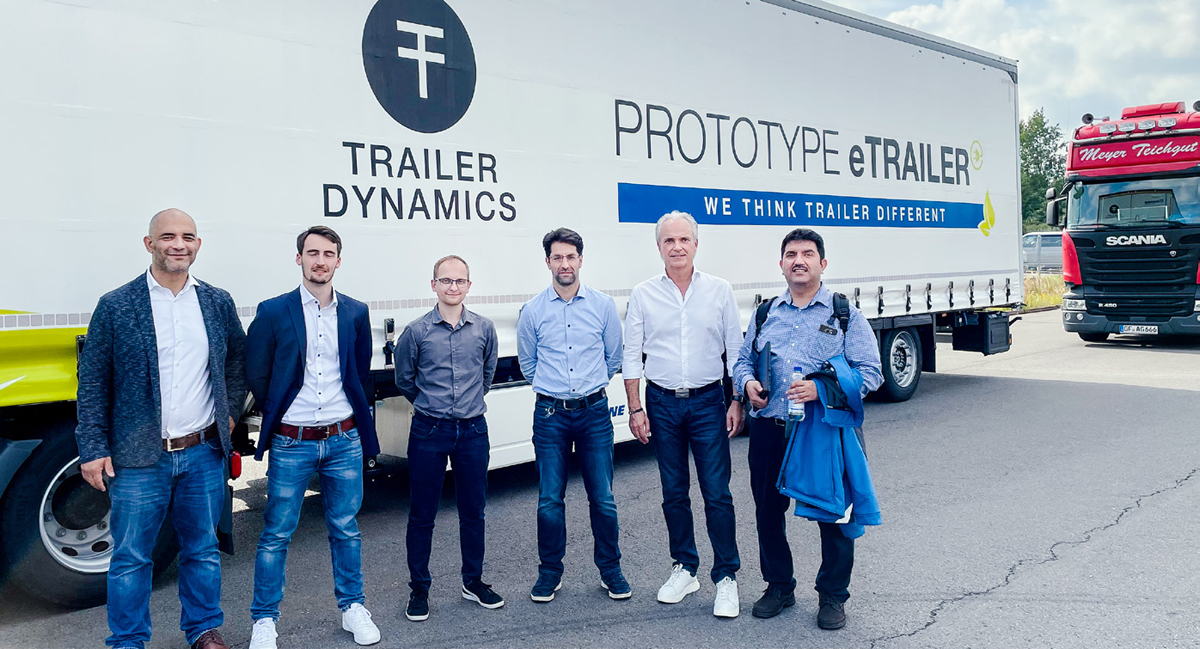
Although Trailer Dynamics was also in negotiations with another potential partner at that time, the choice fell naturally on Krone, because: “You can’t handle a project like this with money alone. You also need enthusiasm, technical support, experience, a production line and a shared vision: we were able to put a big tick behind all of that with Krone.” Both partners complement each other with their strengths: “Krone knows how to build trailers, knows the market, all the technical guidelines and has the experience in communication. And we at Trailer Dynamics add our imaginative ideas.”
Learning from every ‘no’
With every ‘no’ to its approaches that the Trailer Dynamics team has had to digest, it has learned something new, according to Abdullah Jaber. “Whenever someone says something doesn’t work or doesn’t make sense, you question yourself and your product and develop further.” Within only six months, the first functioning prototype was finally created with Krone. “This also means that we were not only able to prove technically that our device works, but also that it is an economic solution.” Many other players in the industry are now also very interested in it.
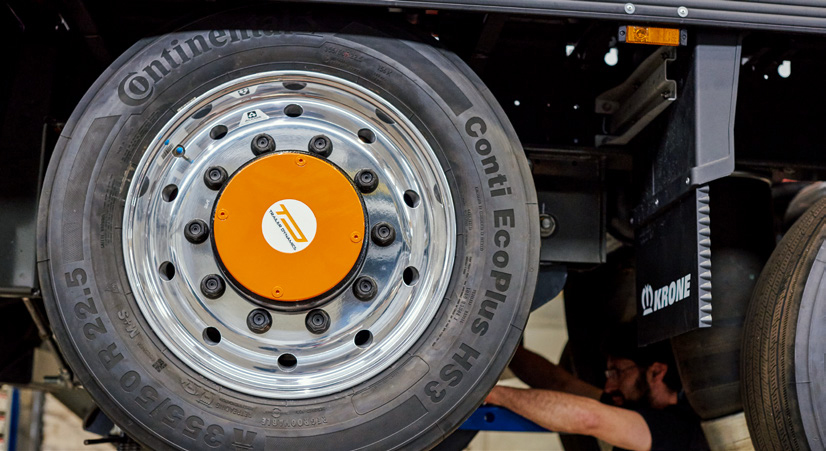
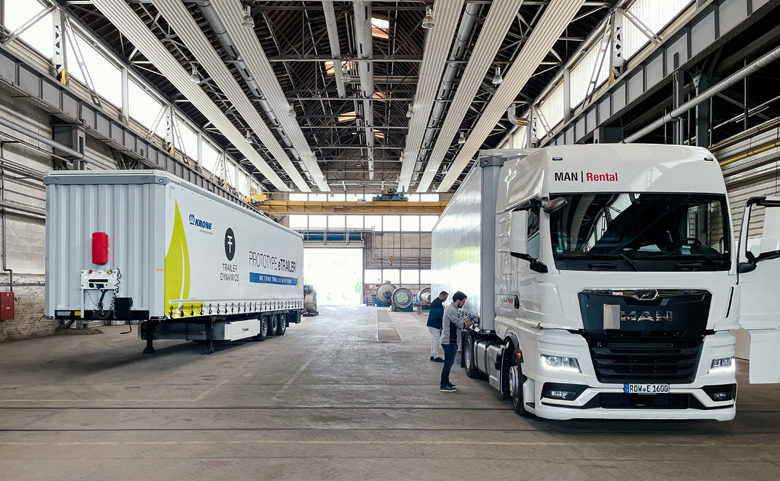
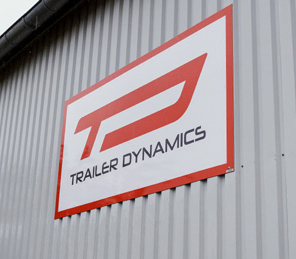
From its production hall in Eschweiler, the Trailer Dynamics team aims to make long-haul trucks more sustainable.
“In the development of the eTrailer, we were always faced with real challenges. We basically had to reinvent everything and were often pioneers,” explains the technology expert. With the help of a digital twin, we tested how the drive should be designed, how large the battery should be and how strong the drive power of the axle should be: “We learned a lot from this digital model. At the moment there are field test vehicles, with a total of around 20 to follow for technical validation. “We are well on track,” says Abdullah Jaber. To solve the problem of insufficient range and long charging times, Trailer Dynamics is thinking about a concept where the batteries can be easily swapped on the road.
PROFILE
Trailer Dynamics, founded in 2018, sees itself as a technology innovator and has developed an intelligent electric drive train for trailers that makes long-haul trucks more sustainable. In addition to founders Abdullah Jaber and Michael W. Nimtsch, Jochen Mählmann is the other managing director.
Abdullah Jaber feels it is a privilege to be able to deal with all these issues and to help shape climate protection. “We don’t just talk about climate change and problems, we actually do something.” With friends around Prof Achim Kampker, Trailer Dynamics has joined the association ‘Engineers Save the World’: “That might sound a bit out of touch, but behind it there really is the idea of making a contribution. I think we have to offer technical services that make a better world possible - for us and our children.”
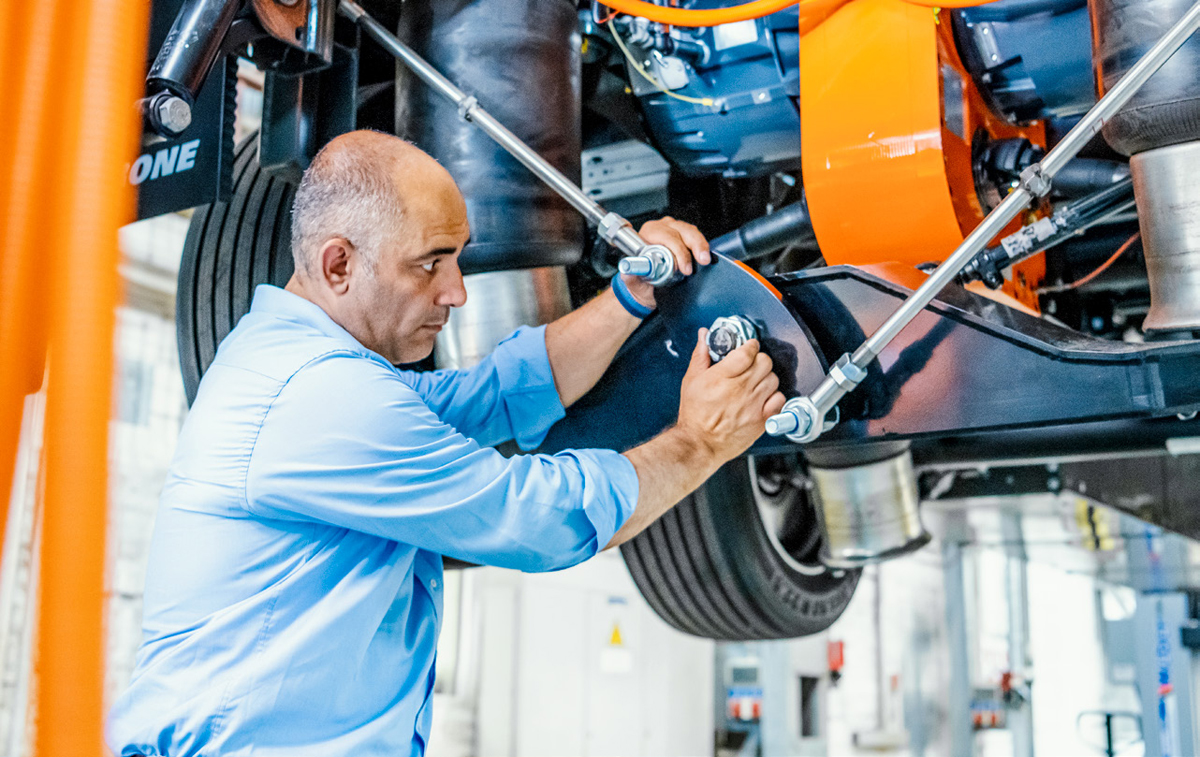
Photos: Trailer Dynamics; das-design-plus.de, Sabine Schmidt




